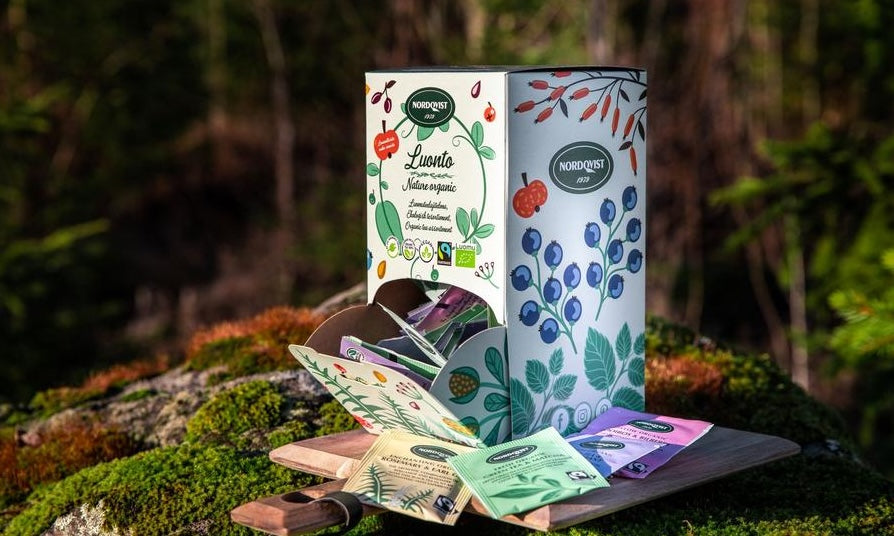Why is Rooibos naturally caffeine-free?

For tea enthusiasts seeking a caffeine-free alternative without sacrificing flavor or health benefits, Rooibos tea offers a perfect solution. But have you ever wondered why this increasingly popular South African beverage naturally contains no caffeine, while most other teas do? The answer lies in botany, evolution, and the unique environment where Rooibos grows.
Not a True Tea: Understanding Botanical Classification
The primary reason Rooibos lacks caffeine is simple yet fundamental: it's not a true tea. All true teas: black, green, white, and oolong come from the same plant species, Camellia sinensis, which naturally produces caffeine. This caffeine serves as a natural insecticide, protecting the tea plant from pests.
Rooibos (Aspalathus linearis), however, is a member of the legume family (Fabaceae), making it more closely related to peas and beans than to tea. As a legume, Rooibos follows the typical pattern of its plant family, which doesn't include caffeine production as part of its genetic makeup.
Evolutionary Adaptations in the Cederberg Region
Rooibos is indigenous to a small area in South Africa's Western Cape province, specifically the Cederberg region. This harsh, mountainous environment shaped the plant's development in several ways:
-
Unique Ecological Pressures: The Cederberg's dry climate, sandy soil, and extreme temperature fluctuations created evolutionary pressures different from those faced by plants in the Asian environments where true tea evolved.
-
Alternative Defense Mechanisms: While Camellia sinensis developed caffeine as a chemical defense, Rooibos evolved different compounds to protect itself, including various polyphenols and antioxidants like aspalathin (unique to Rooibos).
-
Efficient Resource Allocation: Caffeine production requires significant energy from plants. In the nutrient-poor soils of the Cederberg, Rooibos evolved to allocate its resources toward other survival mechanisms, like drought resistance, rather than caffeine production.

The Chemistry of Rooibos
Instead of caffeine, Rooibos contains a unique profile of compounds that contribute to its health benefits and distinctive taste:
- Aspalathin and Nothofagin: Rare antioxidants found almost exclusively in Rooibos
- Flavonoids: Including quercetin and luteolin
- Phenolic Acids: Contributing to its antioxidant properties
- Essential Minerals: Such as calcium, manganese, and fluoride.
These compounds provide Rooibos with its characteristic reddish color and slightly sweet, nutty flavor profile all without the bitter notes often associated with caffeine.
Benefits of Naturally Caffeine-Free Tea
The absence of caffeine in Rooibos isn't just a botanical curiosity, it offers practical benefits for many tea drinkers:
- No Processing Required: Unlike decaffeinated teas, which undergo chemical processes to remove caffeine, Rooibos is naturally caffeine-free, preserving its natural composition.
- No Time Restrictions: Can be enjoyed at any time of day, including before bedtime, without disrupting sleep patterns.
- Suitable for Sensitive Groups: Safe for children, pregnant women, and those with caffeine sensitivities or certain medical conditions.
- No Caffeine Side Effects: Avoids potential downsides like jitteriness, increased heart rate, or anxiety that some experience with caffeinated beverages.
The Genetic Perspective
On a genetic level, Rooibos simply lacks the genes that code for the enzymes involved in caffeine synthesis. While the tea plant (Camellia sinensis) has evolved the metabolic pathways to produce caffeine from xanthosine, Rooibos never developed these specific genetic instructions.
Cultivation and Sustainability
The unique properties of Rooibos, including its caffeine-free nature, are intrinsically tied to its specific growing environment. This has important implications:
- Rooibos can only be commercially grown in the specific climate of the Cederberg region
- Climate change poses potential threats to this specialized crop
- The limited growing region gives Rooibos unique terroir characteristics, similar to fine wines
Rooibos tea's naturally caffeine-free status is not accidental but the result of millions of years of evolutionary adaptation in its unique South African habitat. As a member of the legume family rather than the tea family, Rooibos took a different evolutionary path, developing its own set of beneficial compounds rather than producing caffeine.
This natural absence of caffeine, combined with its pleasant taste and health benefits, makes Rooibos a valuable alternative for those looking to reduce their caffeine intake while still enjoying a flavorful hot beverage. Whether you're caffeine-sensitive, pregnant, serving tea to children, or simply looking for an evening drink that won't keep you awake, Rooibos offers a solution that's as natural as it is delicious.









